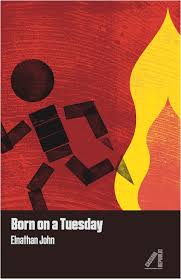Northern Nigeria googled, cannot come up without a tag of violence, the BokoHaram Sect in particular. for Nigerians and many foreigners, the lives and stories of the people who come from the northern part of Nigeria are mostly nothing but the ‘pieces’ of news that we gather from the media. Just a very few have had first hand experiences of how life is in the area, and many of the few have not had the opportunity or are not ready to tell of their experiences.
I am not sure about calling BOAT a Northern Nigerian Literature, but I am sure that in the Nigerian Literature Scene, literature from the North are not many, and even the available ones are not of much interest of study or are not available or known. So, what Elnathan John has done with BOAT is to bridge this void to a great extent.

BOAT like ‘Season of Crimson Blossom’ by Abubakar Adam Ibrahim delivers current and vivid stories of the north into the mainstream of the Nigerian Literature. Other than steady news of violence, we are able to see, read and feel though in fiction, some close to real experiences of life in the north, that there are people living there excluded from the violence, survivors or victims who still have the capacity to live, love, bear pain, make decision and interact with the outside world, a normal process of life with ‘normal’ people.
BOAT transcends and projects beyond violence. The story is told in the voice of Dantala, the protagonist in the story, of how he lives on the streets, blends into a gang that gets employed by a small political party to fight its opposition. The attack on the opposition’s headquarters office turns ugly and Dantala escapes to another city where he finds solace (food, shelter, education, mentor-ship, love, betrayal, loyalty) in the hands of the Sheikh of the Mosque. He maneuvers through the story with the background of his sick mother and his brothers who have joined a rival sect considered extreme and dangerous, a point where his loyalty and quest for self finds expression.
Elnathan writes this story in a mixed tone, sometimes humorous, sometimes sad, sometimes funny and sometimes tragic. His writing is very vivid, it describes to the letters, takes us to the scene of events and ropes us into the live of the characters and their environment which is of particular concern and interest. The language of Dantala is Nigerian, and many other instances there are code mixing and switching without any foot note or hyphenated explanation. This in some way project an inquisition into the cultural essence of the book, it draws the reader to find out, to explore and get into the language, cultural setting and experience in the book. A plus,I think, for the editor for the careful abandonment of trying to spoon the reader.
Elnathan story telling skill is superb. He writes in a linear way, the events roll into each other with a careful commitment to memory by the use of Dantala’s journal (a journal which also helps focus on his evolving process and integration). This style I think is close or similar to Achebe’s, in a more particular way of holding cultural essence in African Literature. BOAT offers a front row exposition into the burning issues of violence in the northern part of Nigerian, as a way to present the everyday lives of the people who live and base there, along religion, politics and culture. It presents them as a people not as victims only. For example, a reader can have a close imagination of what an Almajiri passes through and how they survive.The narrative is clean and a good debut for the two-time Caine Prize finalist.
BOAT breaks the silence and mono view that surrounds the Northern story.